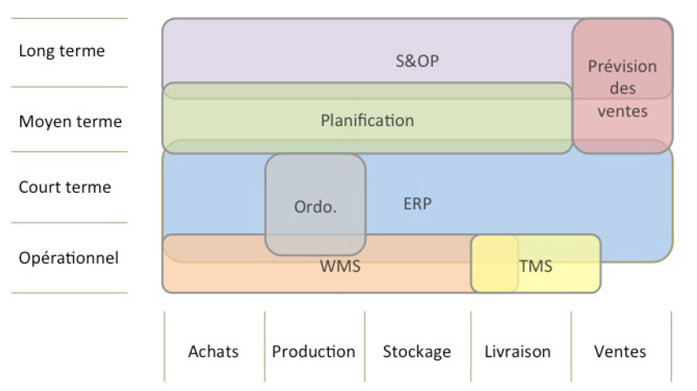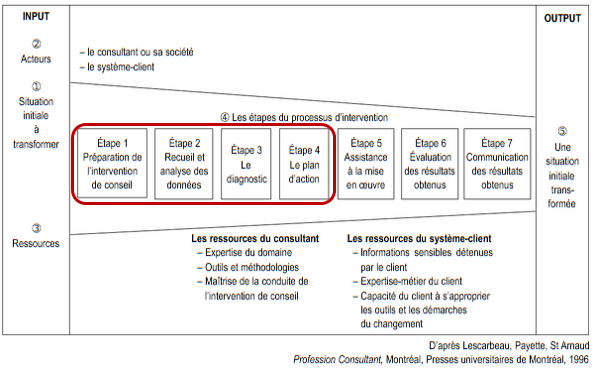My end-of-course internship in Supply Chain Management
At ALOER, our interns are fully integrated in our staff: old time of “photocopy” or “coffee machine” internship is over. Doing an end-of-course internship in Supply Chain Management within our team is showing the willingness to enter the specific environment of a human-scale service company and their “strong personalities”.
Young graduates are more than ever trained to the specific skills requested by organisations and better prepared to integrate the work environment. The end-of-course internships can be the key for a good career kick-off. We hope to contribute a bit to it.
 Fantin RICHARD Interview
Fantin RICHARD Interview
Etienne Georges – ALOER Manager: Why did you choose ALOER?
Fantin Richard: I joined the company ALOER for my end-of-course internship within the frame of my Master 2 at the ESCE International Business School in Supply Chain Management. I immediately wanted to join the company’s adventure after the excellent contact I had with the team during the job interview and the case study they proposed. I oversaw the opportunity to benefit from the consultants’ experience to deepen and complete my theoretical knowledge in Supply Chain. The possibility to fully participate to the life of a human-scale company also reassured me. The consultants’ experiences and diverse skills allowed me to build a better understanding of the French SMEs economic network, the ERP and APS software universe as well as the constraints and challenges of companies Supply Chain.
Etienne Georges: In addition to an experienced team of consultants, we at ALOER, choose to have young interns. It allows us to fully play our role of training organization and transfer skills related to our business activities. Putting our methods into practice internally enables us to validate them before employing them to our clients.
Christine Inglessi: The ALOER training service is intended to our clients and also to our collaborators and partners.
All our consultants are encouraged to build new skills and frequent trainings are proposed in that spirit: CPIM and DDMRP or software features upgrading.
As training centre in Supply Chain Planning, our partner editors often rely on us to train their future integrators, in France and abroad.
On top of this, we deliver specific training to our clients in SCM — Supply Chain Management, Lean Manufacturing, Project management and Information System expertise.
Moreover, we are already registered on Datadock and our training catalogue is available. Those trainings are a real plus for our interns too!
Bénédicte Krebs, Senior Manager Supply Chain: What was the purpose of your mission?
Fantin Richard: For about six months, I joined the project team in charge of the company internal processes continuous improvement which includes the company documentary and management system development.
More precisely, I participated in the supply chain audit method “restructuration and improvement” project. The objective was to standardise and optimise the data collection to increase the clients’ recommendations’ pertinence, rapidity and personalisation, generated at the end of each audit mission. ALOER is a specialist in global Supply Chain (see figure below) and has a precise expertise in Supply Chain Planning. Therefore, it is obvious that most of its consulting missions are centred on this perimeter.

Bénédicte Krebs, Jean-Benoît Sarrazin:
The supply chain audit method review provided several benefits:
- The common frame of reference enables consultants to easily compare various diagnostics
- This very same frame of reference enables classifying the clients against their Supply Chain maturity and then link actions and efforts needed to achieve excellency
- Finally, the existing method review has been conducted in a win-win spirit so that the client also benefits from the method: a quick audit, a market positioning, action plans easy to follow and to handle.
Jean-Benoît Sarrazin, Senior Consultant and internship supervisor: And more exactly, on what elements did you focussed on?
Fantin Richard: You may already know some great frames of reference for Supply Chain evaluation such as the SCOR model, the EVALOG for the automotive sector or the ASLOG frame. They allow measuring companies’ supply chain performance with different levels of details, depending on the models. These models are renowned but not designed for consulting firms, who, by their position as external auditor, prefer evaluating and spotting weak areas of the auditee Supply Chain. Indeed, consultants must both understand the auditee’s Supply Chain environment and functioning so they can provide an evaluation and propose improvements. These models have nevertheless brought key elements to ALOER’s method.
Bénédicte Krebs: The frames of reference studied by Fantin during our method review enabled audits grids construction. They mix different aspects to audit:
- basic requirements to be found in any company that already started the development of its supply chain, directly emerging from standard frames of reference
- specific requirements for the audited client: requirements related to the Information System (data uniqueness, database management, integration…), to the profession frames (aerospace, automotive, pharmaceutical, distribution…), to the company culture (SMBs or MNBs, ISO certified and process-structured companies…) that have impacts on daily tasks and missions
- market and HR elements coming from our own experiences
The reviewed method enables the consultants to have a professional and customizable “home-made” tool.
Jean-Benoît Sarrazin: All along his mission, Fantin has been guided by ALOER’s CEO and consultants to build a method based on the standards while integrating the specific needs of our business activities and expertises.
As an example, Fantin came with us during client’s onsite interventions to better understand their industrial environment, issues and needs. This way, he oversaw the consultant’s work and approach and their technique to conduct audits.
Bénédicte Krebs: Tell us more on the method of ALOER?
Fantin Richard: There are 4 key elements in a method: processes, tools, deliverables and shared roles (Zellner et al., 2011).
The method strategic thinking is oriented on the onsite client diagnostic and report that constitute the tools and part of the deliverables identified by Zellner et al. (2011). Moreover, the user procedure of the method defines the roles of every participant in the supply chain audit mission. The other processes mentioned by Zellner et al. (2011) are integrated within Aloer management system and its associated documents.
Bénédicte Krebs: We made sure with Fantin, that his work could directly integrate the already existing system. This system is based on a process management like the ISO9001. The audit method and the associated deliverables are entire parts of the process “realize” that regroups the procedures, processes and templates managing our services:
- Information system integration
- Supply Chain, Lean, Project, expertise on several concepts and change management training
- Business Support in IT on transformation projects and change management
- Supply Chain consulting
The work done by Fantin will be immediately usable for Supply Chain consulting missions.
Fantin Richard: Lescarbeau et al. (1996) define the audit process with the following model. At ALOER, Supply Chain audit missions are centred on the four phases identified in red. The rest of the phases being realized in the frame of complementary missions: support and audit recommendations application.

Jean-Benoit Sarrazin: What will be the future of the method tools?
Fantin Richard: Since the beginning, we have considered that the project would evolve over time and that the method would be integrated to Aloer’s management system. As ALOER is also a software solutions integrator, the consultants’ skills could contribute to the automation of the tools. ALOER is now in possession of a design tool, potentially automatable in the future.
Jean-Benoît Sarrazin: The method tools built by Fantin are an excellent starting point to ease the Supply Chain audits realisation. This tool will evolve over time under two angles:
- The subtlety and comprehensiveness of its content
- The industrialisation of the tool (multi-users, ergonomics, web architecture…)
Regarding the results already obtained, ALOER team is highly motivated in upgrading the tool created by Fantin to make it more efficient.
Etienne Georges: What are the benefits of this mission for the clients and for ALOER?
Fantin Richard: From what I know of the company, ALOER pays close attention to its clients and adapts easily to any situation. Proposals to clients are realistic, honest, and fit their needs. This integrity is one of the company values. As the recommendations made are pertinent, the audit mission is usually followed by a support over time to accompany them. This allows any client to have a frequent support to improve its supply chain performance.
Consultants, supervised by a dedicated project manager, are very reactive to answer the client’s needs, a characteristic that proved useful and support the growth of the business. Moreover, senior and junior consultants form complementary and polyvalent pairs leading to better mission management.
The methodology comes to support consultants and the company to serve its clients better.
Bénédicte Krebs: Fantin brought to ALOER a young and dynamic external perspective as well as criticism to the established methods. This helped us building together a frame of references adapted to the needs of today’s Supply Chain Managers: rapidity, efficacy, easy comprehension to share quickly the audit results with graphs, short synthesis associated with simple action plans. Now it’s our job to push the reflexion further to get a fully collaborative tool.
Etienne Georges: What are the personal benefits of this experience?
Fantin Richard: I developed skills in project management and planning, time management and tasks prioritization. I also developed precise knowledge about Supply Chain, field of expertise of the organisation. I had the occasion to follow long term progress of software implementation, APS type, for companies who are leader of their own market. I discovered the concept of lean office applied within ALOER, which structures the same way the computer files management. I am glad I had the opportunity to benefit from a global training and support all along my mission.
In addition, a human-scale organisation enables approaching several issues from general company management to software configuration or commercial and marketing development. It has been really enriching and I thank all the team for this experience that will help me enter the working environment with a sharpened business comprehension, and a better understanding of the supply chain management impacts on organisations.
Jean-Benoît Sarrazin: Fantin rapidly integrated ALOER’s environment, proper to the human-scale service companies: always in action, where mutual assistance and a permanent support between collaborators is daily. He succeeded in his mission’s challenges with energy and earnest even when they were not related to his academic or professional experience. It has been a real pleasure to work with Fantin, we hope it has been as enriching for him as it has been for us and beyond his mission purpose.
Christine Inglessi – Marketing and Sales Representative: From a personal point of view, what experiences eased your fast integration to the team of ALOER?
Fantin Richard: First, I deeply appreciated I have been integrated as an operational employee. The benevolent team strongly participated to this fast integration and I am grateful for that.
During the last years of my educational background, I developed multiple skills that eased that integration. Native of Lyon, I have been to Andalusia, Galicia, then Nottingham, United Kingdom and Paris during the past three years. By changing environment approximately every six months, I developed a strong adaptation and integration ability to avoid the frustration of being only living a short period of time in each of these places. The diversity of these experiences: Erasmus program, internship abroad and Bachelor at the English university reinforced my natural curiosity, my enthusiasm, and my ability to bind with people that surrounds me.
Finally, regular and passionate of outdoor sport, I am trained for hard work, and the modification of my aptitude in altitude. The preparation and involvement required by this sport practice always reinforced my determination to generate and capture the opportunities, whatever the difficulties.
References
Lescarbeau et al., (1996). Profession Consultant. Presses universitaires de Montréal.
Zellner et al., (2011). A structured evaluation of business process improvement approaches. Business Process Management Journal, 17(2), 203–237.

 Fantin RICHARD Interview
Fantin RICHARD Interview